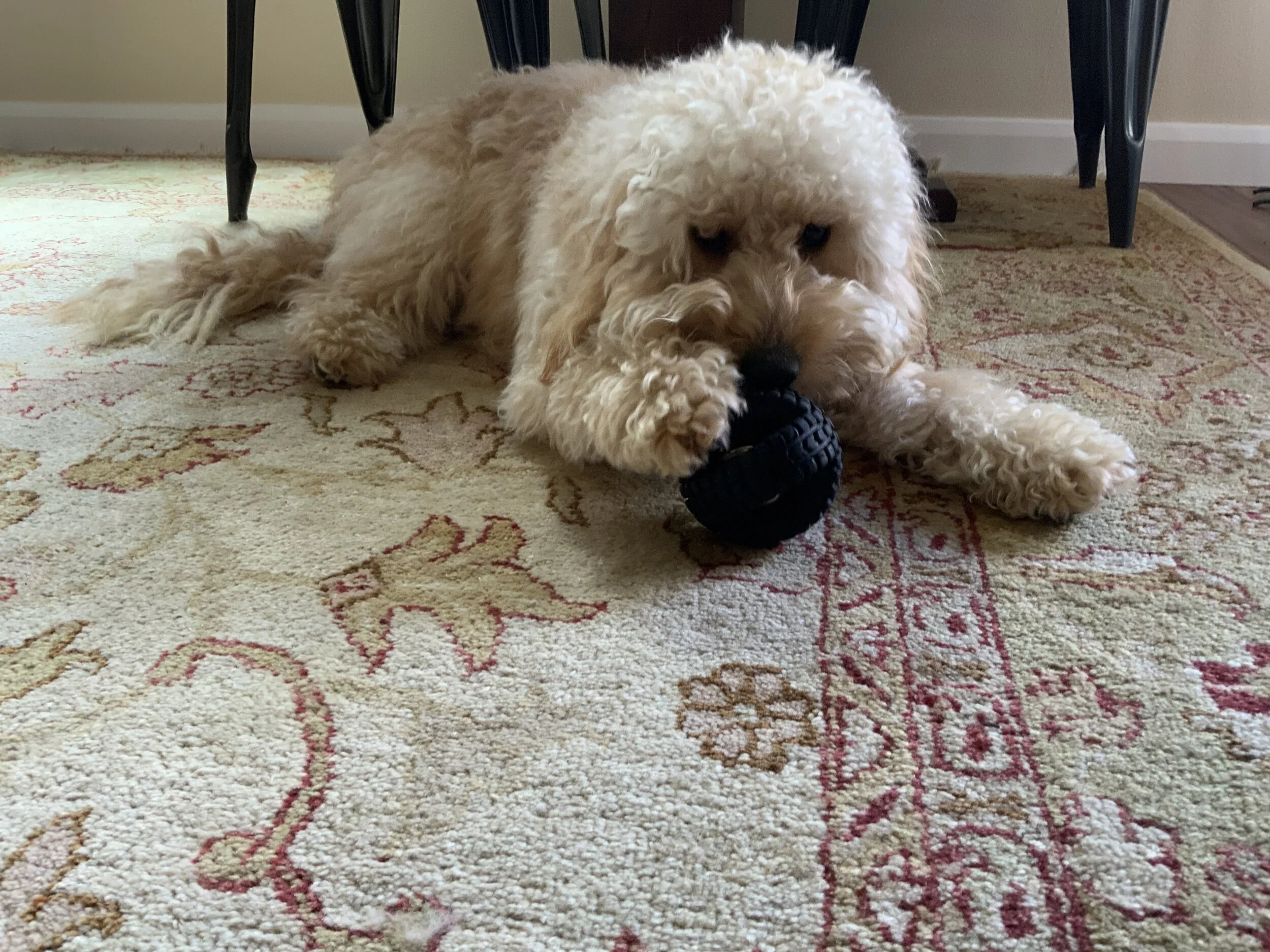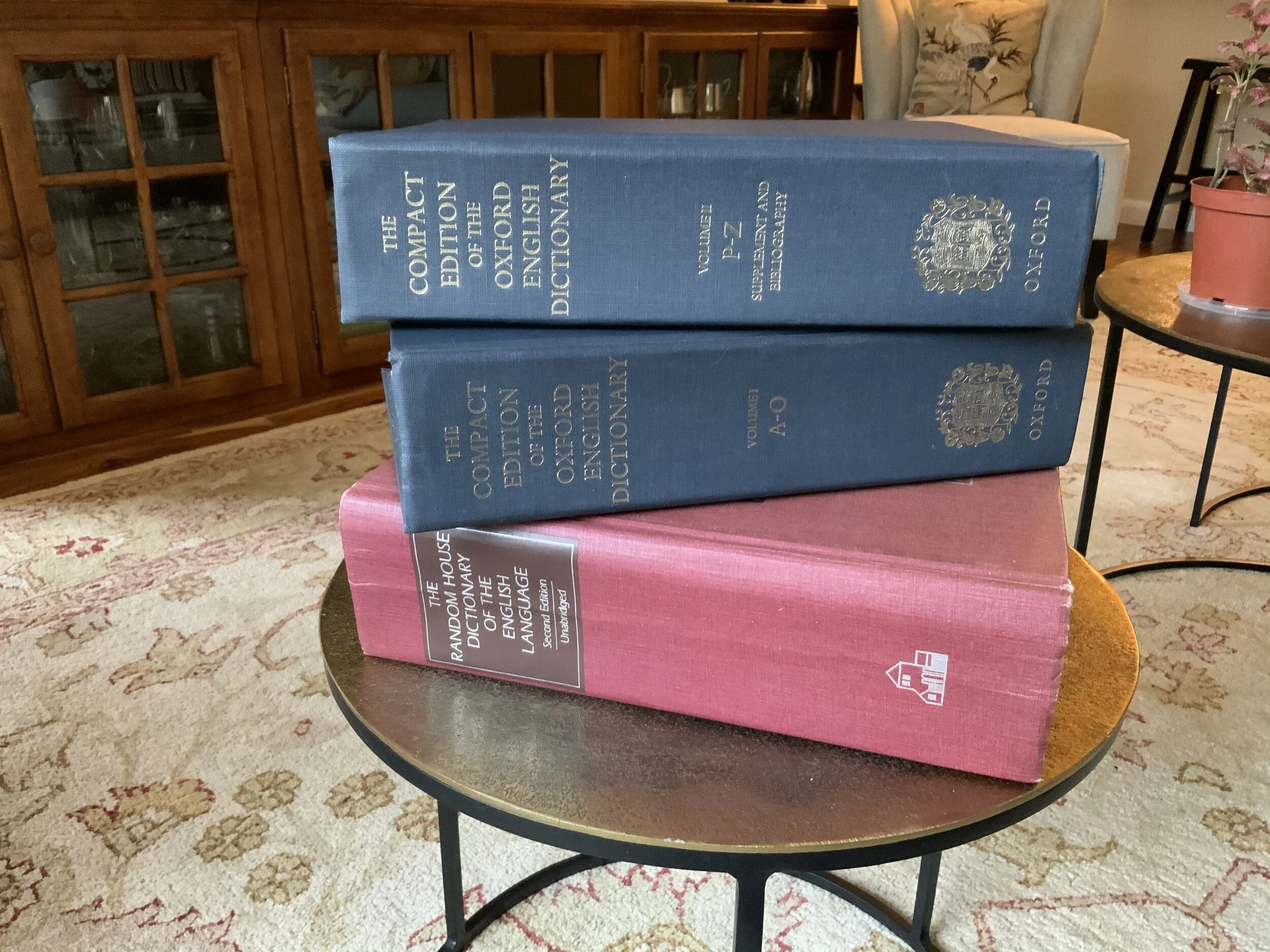Monday, February 22, 2021
It was clutter of concepts crowding my mind as I moved from sleep to wakefulness, from bed to slippers on the floor. How is “I” defined? I wondered. Are we the body we each . . . (I searched for the verb) . . . “Possess”? “Inhabit”? “Occupy”? Am I merely body (praiseworthy in complexity, admittedly)? Why then, do we humans speak of the body as separate from self; as if I am something other than, more than, what houses me?
“Am” belongs to the irregular verb “Be” and irregular is how it makes me feel when I suggest to myself that I “am” body. Rather, I am inclined to think that I am not my body; rather, my body is part of who/what I am, whatever that is.
Bill Bryson, one magnificent American author stolen by the Brits, has written a magnificent book, “The Body—a Guide for Occupants.” For 383 pages plus another nearly one hundred of miscellaneous notes and acknowledgements, he details our physical construction. If I were to purchase all the necessary elements to build a human body, which would cost me about $151,578.46 plus labor and sales tax, still, I am incapable, save by one required means, to build one. Besides, says Bryson, it takes 7 billon billion billion atoms to build a body. And who has that amount stored on a shelf in a small apartment, I say.
I accept, by the presence of consciousness, that body is a part of me but, of course, I reject that I am merely body, or even merely consciousness. We all know better. Don’t we? What do we mean when we say of the guy smacked in the noggin by a flying Frisbee that he has “lost consciousness? Where did it go? Who is he, without it? His body is present, but is he?
Wait! He is identifiable, even without consciousness. There are vital signs! Quick! Rush Herold, Hirim, Henry, whomever, him, it . . . (I’m searching for the right noun or pronoun now) to the hospital where, perhaps, they can “find” some spare consciousness? No. It is “his” that they seek. A particular one, lost, we say, but belonging to him, to his brain.
Brain function is, I want to say, more important body function. Given a choice of brain or body paralysis, I would choose to close down the body – unless, of course, that included paralysis of swallow, breathe, and beat. Now, there’s a problem.
What is this controlling brain that manufactures all our senses, that makes up stuff on our behalf –like, really folks, the subatomic particles of sound waves are silent, but when the balloon pops in the teeth of a pup, our sneaky brain adds sound that doesn’t otherwise exist. If we are lucky, we each . . . (I’m searching for the verb) Have one? Are One?
Consciousness, conscience, judgment, discernment, calculations, language, movement, emotions, values, pain, impulses, sight, sound, senses, humor, and goodness knows what else, reside in my brain. But when I speak of it, I speak as if I am other than it; as if I am not brain, rather, that I have one. Is that another of brain’s sneaky tricks, handing me a concept of self being more than?
Then there’s this:
“She deliberately rammed my car while she was parking!” The “she” is being acknowledged as somehow responsible for “her” behavior. Do we contend that “she” possesses what we call volition? What now, such terms as: responsibility, free will, choice, judgment, impulse?
“Your Honor,” the offender says. “Body, coerced by Brain, did it. I just wasn’t myself this morning.” “Self” being what?
“Consciousness, or Brain, is to blame, not . . . (I’m looking for something other than a personal pronoun since personal pronouns tend to place responsibility squarely on some part of us other than body or consciousness, right?) As in “YOU are guilty.”
And what of those things like feelings that seem to have no physical explanation like attraction or love or vision or even life? Bryson reminds us in his book, “A Short History of Nearly Everything,” that the atoms we are made of care not one whit about us. In fact those mindless particles (atoms that make us us) are not even themselves alive. Bryson sobers us up a bit when he writes that, “if you were to pick yourself apart with tweezers, one atom at a time, you would produce a mound of fine atomic dust, none of which had ever been alive but all of which had once been you.”
It’s a clutter of waking thoughts my brain offered as it moved my mind, my body, and me from sleep to wakefulness (and what about sleep? Where do we go during its control? What is it doing with us in our unguarded state?) Who am I to fuss about it?




